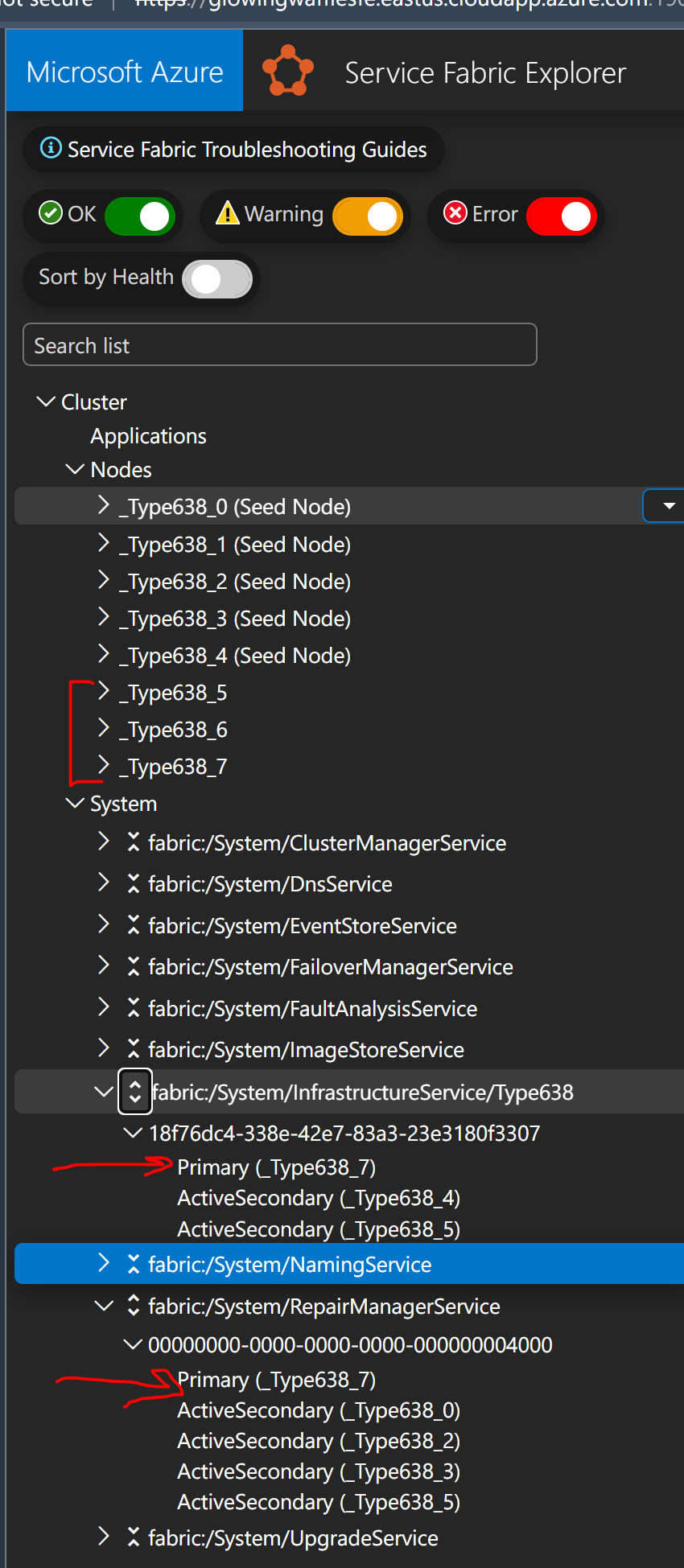Welcome to Microsoft Q&A Platform, thanks for posting your query here.
Primary NodeType: Exactly one node type in SFRP tenant cluster is marked as primary. All system services and seed nodes are present in this node type.
Seed nodes are in accordance with the Cluster's Reliability Level. So if Cluster's reliability is Bronze, it will have 3 seed nodes in Primary Nodetype, if its Silver then 5 seed nodes in Primary Nodetype and so on. These are nodes that maintain the availability of the underlying cluster. Seed nodes help to ensure that the cluster stays up by establishing leases with other nodes and serving as tiebreakers during certain kinds of failures.
DNS Service is an optional service in Service Fabric and is one of the means for Service Communication. Reference https://learn.microsoft.com/en-us/azure/service-fabric/service-fabric-connect-and-communicate-with-services.
Refer more details on System Services here https://learn.microsoft.com/en-us/azure/service-fabric/service-fabric-technical-overview#system-services
Hope this helps.
If you need further help on this, tag me in a comment.
If the suggested response helped you resolve your issue, please 'Accept as answer', so that it can help others in the community looking for help on similar topics.

